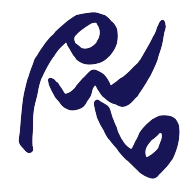Welcome to the Population Well-being Lab
at the University of Toronto!

The Population Well-being Lab focuses on research, teaching, and advocacy related to the determinants, consequences, and policy relevance of a satisfying, purposeful, and engaging life.
Our lab takes an interdisciplinary perspective and uses diverse methodological and statistical techniques to examine population well-being in relation to pressing global issues (e.g., sociopolitical unrest, economic justice, and major population events). We actively support greater openness and transparency in science.
Check out the Current Projects to learn more!
Latest News
- Felix Cheung and Yeeun Archer Lee Co-Authored Chapter in 2025 World Happiness ReportWe’re proud to share that our PI, Dr. Felix Cheung, and former postdoctoral fellow Dr. Yeeun Archer Lee (now Assistant Professor at Trinity Western University) co-authored a chapter in the 2025 World Happiness Report, released on the UN’s International Day of Happiness. Their chapter, titled “Caring and Sharing: Global Analysis of Happiness and Kindness,” highlights… Read more: Felix Cheung and Yeeun Archer Lee Co-Authored Chapter in 2025 World Happiness Report
- Canadian Happiness Report 2024In the first series of Canadian Happiness Reports published in 2022, we drew attention to the downward trend of Canadians’ evaluations of their quality of life since the early-2010s and the well-being disparities that exist in Canada. Since then, there has been a growing concern about declining standards of living in Canada (e.g., inflation, home… Read more: Canadian Happiness Report 2024
- McGill-UofT Wellbeing Seminar LaunchSign up via our Zoom registration page and add the seminar dates to your Google Calendar. The McGill-UofT Wellbeing Seminar hosts a series of open online talks and discussions with leading researchers in the realm of wellbeing across a variety of disciplines. This seminar series, held at noon on the first (or occasionally second) Monday… Read more: McGill-UofT Wellbeing Seminar Launch
We would like to acknowledge this land on which the University of Toronto operates. For thousands of years, it has been the traditional land of the Huron-Wendat, the Seneca, and the Mississaugas of the Credit. Today, this meeting place is still the home to many Indigenous people from across Turtle Island and we are grateful to have the opportunity to work on this land. To learn more about why we acknowledge the land, please visit https://indigenous.utoronto.ca/about/land-acknowledgement/. To learn more about the territories we are on, please visit https://native-land.ca/ .